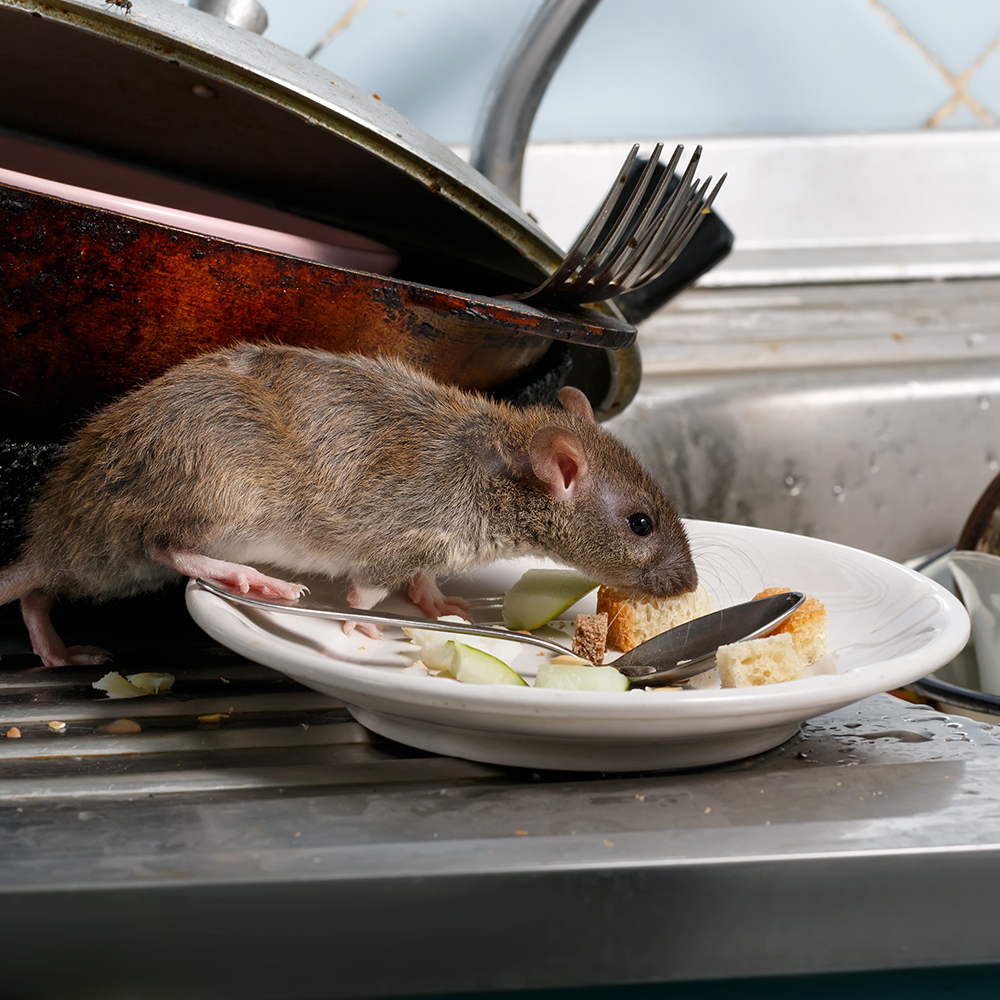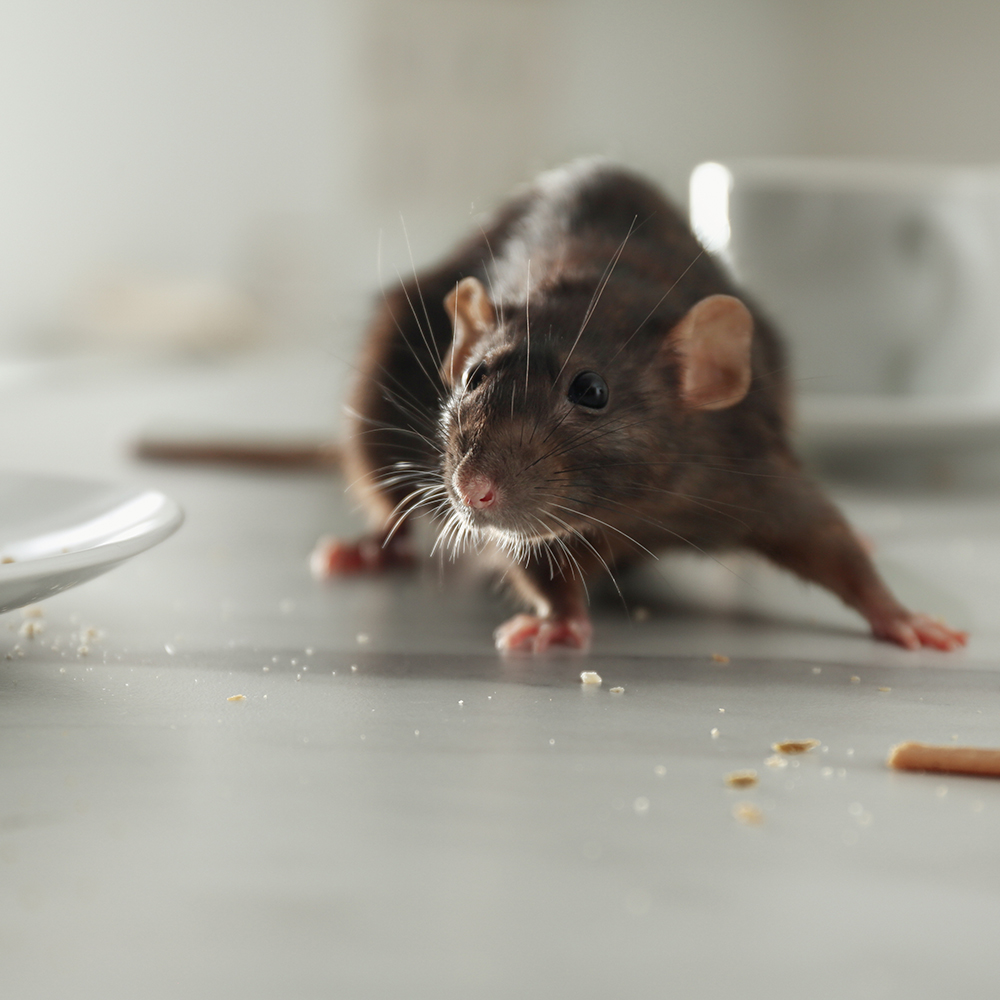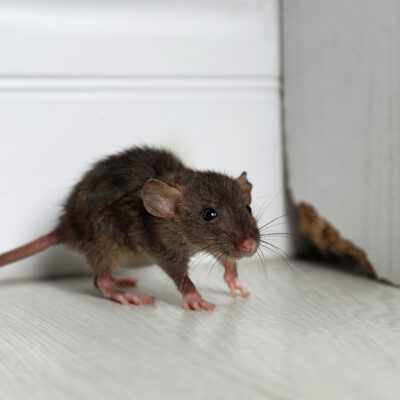Mice & Rat Control
Mice & Rat Control Solutions in Connecticut | Frattasio’s Family Pest Solutions
At Frattasio’s Family Pest Solutions, we understand the frustration and worry that come with discovering mice or rats in your Connecticut home or business. We’re committed to providing safe, effective, and humane rodent control services tailored to the unique challenges of our New England climate. Rodents like house mice and Norway rats thrive in Connecticut’s cooler months, sneaking into attics, basements, and walls through tiny entry points. But you don’t have to live with the scurrying sounds, gnaw marks, or health hazards they bring. Our expert technicians use proven methods to eliminate infestations quickly and keep them from returning. Whether you’re in Windham, Tolland, or Greater Hartford CT, we’re here to restore your peace of mind with professional mice and rat control solutions for your home or business.
Why Rodents Are a Growing Problem in Connecticut
Connecticut’s mix of urban, suburban, and rural landscapes makes it an ideal habitat for rodents. Mice can squeeze through openings as small as a dime, while rats need just a quarter-sized hole to gain access. With harsh winters driving them indoors and abundant food sources in our homes—from pantries to pet food—these pests multiply rapidly. A single female mouse can produce up to 10 litters per year, each with 5-6 pups, leading to overwhelming infestations if left unchecked. In commercial settings like restaurants or warehouses, the risks are even higher, with potential violations of health codes and damage to inventory.
At Frattasio’s, we’ve seen it all: from colonial homes in Windham County battling attic invaders to office buildings in Greater Hartford CT dealing with basement squatters. Our rodent control programs are designed not just to react to problems but to prevent them, using integrated pest management (IPM) strategies that prioritize your safety and the environment.

Signs of a Mice or Rat Infestation
Spotting the problem early can save you thousands in repairs and health issues. Here are the most common indicators of rodent activity in your Connecticut property:
For Mice:
- Droppings: Small, dark pellets about the size of rice grains, often found along walls, in cabinets, or near food sources.
- Gnaw Marks: Tiny chew marks on food packaging, furniture, or electrical wires—mice must gnaw constantly to keep their teeth sharp, posing a serious fire hazard.
- Nocturnal Noises: Scratching or scurrying sounds in walls or ceilings, especially at night.
- Nests: Shredded paper, fabric, or insulation tucked into hidden corners like drawers or behind appliances.
- Grease Marks: Smudges along travel paths from their oily fur.
For Rats:
- Larger Droppings: Banana-shaped, about ½ to ¾ inches long, scattered in high-traffic areas.
- Bigger Gnaw Marks: Noticeable chew damage on wood, pipes, or structural beams—rats can cause extensive structural harm.
- Tracks and Rub Marks: Footprints in dust or greasy trails along walls from their larger bodies.
- Burrows: Outside, look for holes in gardens or under foundations; indoors, they may dig into insulation.
- Strong Urine Odor: A musky smell in enclosed spaces like garages or crawlspaces.
If you notice any of these signs, don’t wait—rodents breed quickly, and a small issue can escalate fast. Our free initial inspections help identify the extent of the infestation without obligation.

Health and Property Risks from Rodents
Rodents aren’t just nuisances; they’re carriers of serious diseases that threaten your family’s well-being. In Connecticut, where hantavirus and leptospirosis cases have been reported, ignoring a rodent problem can lead to costly medical bills and property damage.
Key Health Risks:
- Hantavirus: Transmitted through contact with rodent urine, droppings, or saliva—symptoms include fever, muscle aches, and potentially fatal respiratory issues.
- Salmonellosis: Bacteria from contaminated food causes food poisoning with diarrhea, fever, and abdominal cramps.
- Lymphocytic Choriomeningitis (LCM): A viral infection from mice that can lead to meningitis, especially dangerous for pregnant women and immunocompromised individuals.
- Plague and Tularemia: Rare but possible from rat fleas, causing flu-like symptoms and swelling.
- Allergies and Asthma: Rodent dander and urine can trigger respiratory problems, particularly in children.
Beyond health, rodents chew through electrical wiring, leading to fires (responsible for thousands of incidents annually nationwide), and contaminate food supplies, forcing costly discards. In businesses, they can shut down operations due to health inspections. At Frattasio’s, we prioritize low-toxicity solutions to minimize these risks while ensuring complete eradication.
Working With Us…
 Frattasio’s Family Pest Solutions offers end-to-end rodent control, from detection to long-term prevention. We customize every plan based on your property’s layout, the rodent species, and your preferences for eco-friendly options.
Frattasio’s Family Pest Solutions offers end-to-end rodent control, from detection to long-term prevention. We customize every plan based on your property’s layout, the rodent species, and your preferences for eco-friendly options.
Hiring a professional like Frattasio’s Family Pest Solutions for mice and rat removal in Connecticut is essential due to the complexity and risks associated with rodent infestations. Mice and rats can squeeze through tiny gaps, reproduce rapidly, and carry diseases like hantavirus or salmonellosis, posing serious health hazards. DIY methods, such as store-bought traps or poisons, often fail to address hidden nests or entry points, leading to recurring problems. Professionals use advanced tools like thermal imaging and employ integrated pest management, combining humane trapping, secure baiting, and exclusion techniques to ensure complete removal and prevent re-entry. This expertise saves time, protects your property from damage like chewed wires, and ensures safety for your family and pets.
Residential & Commercial Services
- Homes: Discreet, family- and pet-safe solutions.
- Businesses: 24/7 response, CT health code compliance, and tailored plans for warehouses or restaurants.
Prevention Tips
- Seal Entries: Caulk gaps around pipes, doors, and foundations (mice need only ¼-inch holes).
- Secure Food: Store in metal containers; clean spills immediately.
- Maintain Yard: Trim vegetation, secure trash, remove bird feeders.
- Declutter: Clear garages, sheds, and basements.
- Annual Inspections: Schedule with Frattasio’s to stay rodent-free.
Fall is critical for prevention in Connecticut—act before winter drives rodents indoors.
